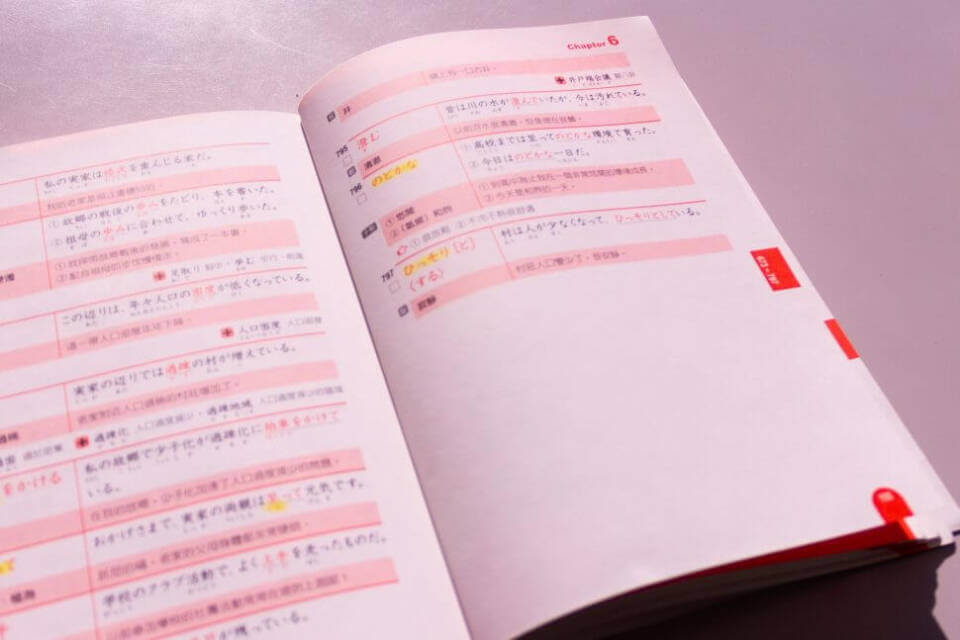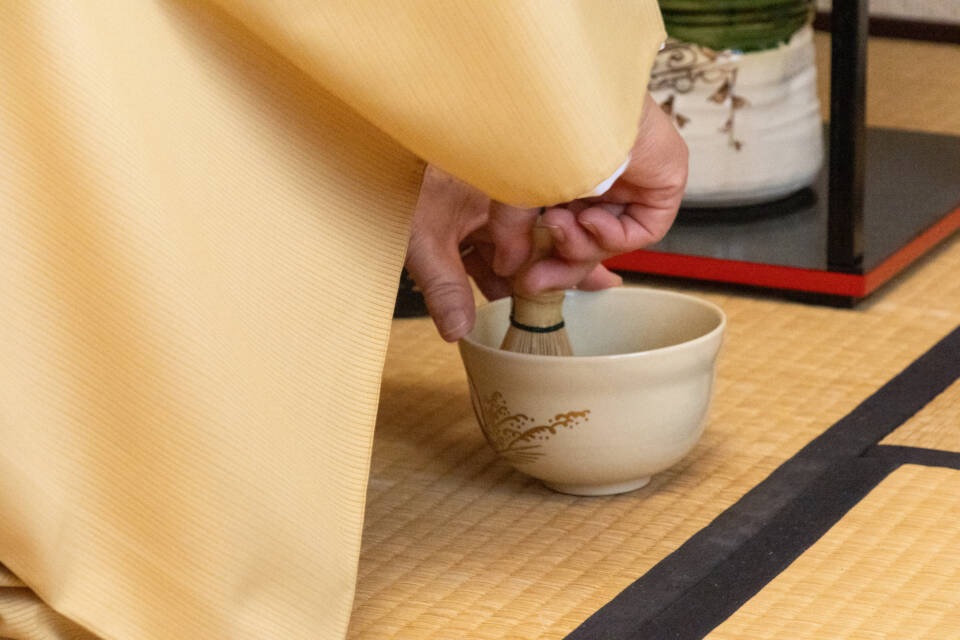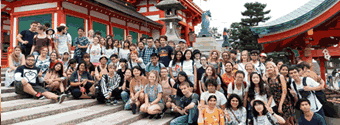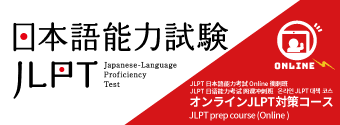7 Essential Checkpoints for Choosing a Japanese Language School in Tokyo Without Regrets
Category: Information

Hello everyone looking for a Japanese language school in Tokyo!
Based on my years of experience in Japanese language education, today I’ll explain in detail “How to truly choose a good Japanese language school.”
There are many Japanese language schools in Tokyo, but each offers vastly different policies, strengths, and support systems.
If you think “all schools are the same”, that’s a big mistake! How you choose can greatly affect your Japanese study results and even your quality of life in Japan.
Many students who transferred to Kudan Institute said, “The first Japanese school I entered wasn’t what I expected…”
To avoid such regrets, I’ll introduce, from a professional perspective, 7 absolutely essential checkpoints!
Checkpoint 1: Student Nationality Composition and Diversity Initiatives

First, check how diverse the student nationalities at the school are. This is actually a very important point!
Many Japanese schools are dominated by students from specific regions (English-speaking, Chinese-speaking, Korean-speaking, etc).
But if you want an international learning experience, pick a school that welcomes classmates from around the world.
Benefits of a Multicultural Environment
- Interaction with classmates from various backgrounds (Europe, Africa, South America, Asia, etc)
- Opportunity to learn from diverse perspectives
- An atmosphere where individuality and opinions are respected
- An environment that encourages you to speak up without fear of mistakes
Schools that emphasize diversity often value individual opinions?a crucial philosophy for learning Japanese.
You’ll gain not only Japanese language skills but also a global perspective.
When you visit schools, be sure to ask: “Which countries do students come from?” “What is the class nationality balance?” “Are students accepted from all over the world?”
Checkpoint 2: Practical Japanese Language Education Program

Next, check the type of Japanese education delivered. Of course, learning “correct Japanese” from textbooks is fundamental, but schools that teach “real, living Japanese” usable in daily life truly make a difference.
Many schools focus on textbook grammar and vocabulary, which is important, but alone may not help you in real-world communication.
Features of Practical Japanese Education
- Acquisition of phrases and expressions often used in everyday conversation
- Correct and appropriate business Japanese (especially keigo)
- Learning natural expressions actually used by current Japanese people
- Integration of role play and simulation learning
Especially if you aim to work in Japan, the ability to communicate for business, from interviews to workplace small talk, is essential.
Schools offering a variety of course formats?from short intensives to long-term programs?are also attractive, as you can select what matches your pace and goals.
Checkpoint 3: Traditional Culture Experience Programs and Activities

Japanese language learning doesn’t stop at the classroom! Picking a school with many extracurricular activities greatly boosts learning results.
I especially recommend schools providing cultural experience programs?for example, Kudan Institute’s tea ceremony session is a top favorite!
What You Learn in the Tea Ceremony Program
- Natural use of polite and respectful language unique to Japan
- Japanese ways to express hospitality (“omotenashi”)
- Beautiful Japanese expressions for the seasons
- Vocabulary for gestures and manners
- Understanding the spirituality and historical background of Japanese culture
Schools with expert tea ceremony programs don’t just offer experience; you’ll also learn about its spirit and historical roots, all in Japanese?a rare opportunity unreproducible by textbooks.
Other Enriching Program Examples
- Participation in local festivals and events
- Exchange events with Japanese students
- Courses to learn about sushi, manga, and more of Japanese culture
- Seasonal activities (flower viewing, summer festivals, autumn leaves tourism, etc.)
- Traditional arts like calligraphy and flower arrangement
Through these activities, you gain “living Japanese” and cultural understanding unavailable in the classroom!
Checkpoint 4: Multilingual Staff Support System

Early in your Japanese study, support in your native language brings great peace of mind.
Choose a school with staff who can communicate in multiple languages?not only academic but everyday life advice too.
Ideal Multilingual Support
- English: Most schools offer this, but check for staff at native level.
- Chinese: Staff knowing the differences by region (China, Taiwan, Hong Kong) and script (Simplified/Traditional).
- Korean: Staff fluent in the Korean language is crucial?many students are Korean speakers.
- Other Asian Languages: Support for Thai, Vietnamese, Indonesian, etc. is increasingly important.
Multilingual capability isn’t just about explaining things when you don’t understand Japanese.
Advice from staff who understand your native language and cultural background can make your learning much more efficient; your lifestyle questions or issues regarding paperwork and systems in Japan are also much easier to handle in your own language.
Checkpoint 5: Comprehensive Life Support System
Support for daily life in Japan is as important as academic support?especially for long-term residents. Excellent schools provide comprehensive help, such as:
Part-Time Job Search Assistance
- Offering job opportunities matched to your preferences
- Interview and resume writing guidance
- Help understanding employment conditions and contracts
- Consultation for troubles or disputes
- Support introducing appropriate jobs
Health Insurance Support
- Assistance signing up for National Health Insurance
- Explanation of hospital procedures
- Guidance for payment of medical expenses
- Emergency response procedures
- Introduction to nearby clinics and access info
Tax & Social Insurance Support
- Explanation of residence tax system and payment
- Assistance with tax returns if needed
- Basic explanation of pension system
- Guidance on using tax deduction systems
- Help with paperwork at tax offices
Housing Support
- Concrete advice for apartment hunting
- Guidance on rental contracts
- Assistance with utility and communication contracts
- Advice to prevent disputes with neighbors
- Student dormitory introductions and support
Such support allows you to focus on your studies, with a stable daily life environment leading to better learning outcomes.
Checkpoint 6: Expertise in Employment Support and Career Services

An often-overlooked but critical point is job support?vital for those who want to work in Japan!
While many schools focus on university entrance, many students actually want to work in Japan. Schools strong in career support offer:
Practical Business Japanese Education
- Systematic guidance in respectful, humble, and polite language (Sonkeigo, Kenjougo, Teineigo)
- Business email writing and etiquette
- Phone skills and business communication
- How to speak in meetings and conduct discussions
- Techniques for report and proposal writing
Job Hunting Support
- Detailed explanation of Japan’s job hunting system
- Resume and career history writing guidance
- Interview practice with feedback
- How to research companies
- Job information and company introductions
- Follow-up after receiving job offers
Industry-Specific Preparation
- IT industry jargon for IT job seekers
- Appropriate language & etiquette for service industries
- Safety and professional language for manufacturing
- Specialist language for medical and care industries
- Teaching skills for education professions
Job support tailored to the Japanese labor market, with its unique customs and practices, is of high value. Success requires mastering not only Japanese but the necessary communication and working styles for Japanese workplaces.
Checkpoint 7: Accessibility and Quality of Learning Environment

Finally, don’t overlook the school’s location and accessibility! In long-term commuting, this is actually a crucial factor.
Your daily commute and transportation cost will directly affect your lifestyle while studying Japanese. Check for:
Transportation Convenience
- Easy access from Tokyo’s major train stations
- Within walking distance from the main station (ideally under 10 minutes)
- Access to both metro and JR lines
Quality of Local Area
- Convenience stores and banks nearby
- Presence of libraries or self-study spaces
- Restaurants and grocery shops
- Medical facilities (clinics, pharmacies) close by
- Nearby public offices (post office, ward office)
Cost of Living Considerations
- Rent in a reasonable range
- Location where you can keep commuting costs down
- General cost of daily necessities
- Access to possible part-time jobs
- Availability of facilities and services for international students
Different Tokyo areas offer distinct characteristics. For example, a central location can provide easy access to key stations after class.
When you visit a school, actually walk the commuting route! There’s a lot you won’t learn from brochures or maps?get a firsthand feel for convenience and atmosphere.
Summary: Finding the Perfect Japanese Language School for You
How was this guide? Here are 7 essential key points for choosing a Japanese school in Tokyo.
Use these points to find the school that best matches your aims and wishes!
Final School Selection Points
- Multinational learning environment for a truly international experience
- Practical Japanese education that goes beyond textbooks
- Cultural programs to experience Japanese traditions (like tea ceremony)
- Multilingual support (English, Chinese, Korean, Taiwanese, etc.)
- Everyday life assistance?consulting on jobs, health insurance, taxes, etc.
- Career support specializing in job-seeking in Japan
- Accessibility and an environment suitable for study
The most important advice: “Visit in person and check with your own eyes.”
There’s a lot you can only sense by visiting: the school’s feel, the teachers’ personalities, current students’ engagement, and more.
Extra Checkpoints During a School Visit
- Cleanliness of the premises and quality of facilities
- Teaching style and how teachers interact with students
- Facial expressions and study enthusiasm among students
- Hospitable, clear answers from staff to your questions
- General atmosphere of the school
- Student engagement and participation in class
Don’t hesitate to ask a lot of questions! In a good school, staff will take your queries seriously.
- Graduate outcomes (admission/job rates)
- Details and record of support content
- Breakdown of any fees aside from tuition
- Scholarship availability
- Availability and details of student dormitories/housing
I hope your Japanese studies go well and your life in Japan will be fulfilling.
May you encounter a wonderful Japanese language school!
If you have any questions, please don’t hesitate to consult me. I want to fully support everyone’s Japanese studies!
I hope this blog helps you find a school in Tokyo. Wishing you every success in your Japanese learning journey!
We sincerely hope your Japanese learning and life in Japan will be fulfilling! If you have any questions, feel free to consult anytime. We are here to fully support your Japanese language journey.
More from my site
タグ: English
2025年7月15日 火曜日 9:25 AM Category: Information.

















